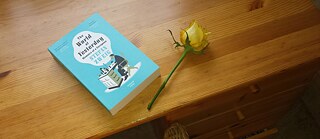October 2019
Stefan Zweig: The World of Yesterday

Memoirs of a European
The work of Stefan Zweig, one of the most beloved and widely translated authors of the German language in the early twentieth century, has experienced a strange renaissance over the past few years. Still largely forgotten in his native language, his books have been re-translated into English thanks to Pushkin Press and garnered attention when filmmaker Wes Anderson named Zweig’s writings as inspiration for The Grand Budapest Hotel.
My own introduction to Zweig was through his autobiography, The World of Yesterday: Memoirs of a European, translated by Anthea Bell. A fascinating testament of Europe’s turbulent changes in the early twentieth century, the book is also a heartbroken love letter to the continent Zweig had so passionately believed in. Zweig charts not so much his own life as his position in a historic generation: born into a Jewish family in the seemingly stable Austrian-Hungarian empire, caught up in the excitement of new art movements around the fin-de-siècle, a traveller whose friendships across Europe made him a rare voice of reason amid the fevered nationalism of WW1, a witness to the absurdities of inflation and desperation following the war, and later an early refugee, fleeing before fascism.
The first chapters of The World of Yesterday, detailing the cultured and comfortable Habsburg bourgeoisie and the young Stefan’s insatiable fascination with European literary life, reminded me – to my surprise – of Philip Pullman’s The Tin Princess. This YA page-turner is set in a fictional German kingdom and introduced me not only to the politics of Bismarck and Austria-Hungary but also to a certain cosmopolitan idea of Europe, in which thinking in several languages was a natural thing to do. Reading Zweig’s depiction of Vienna’s coffee-houses and theatres and of the inherent internationalism of the Habsburg empire, I was thirteen again, dreaming of cities and central Europe and coffee-fuelled debates long into the night. A certain magic is added thanks to Zweig’s friendships with the pre-eminent artists of his day and the resultant cameos made by Rilke, Joyce and Freud, to name just a few.
With the arrival of 1914, however, the tone of the book shifts, becoming more akin to Marilyn Robinson’s clear-sighted autobiographical essays. Zweig is in Belgium with French friends when war is declared and his despair as the continent he loves fragments is heightened on meeting only with jingoism back home. From this point onwards, Zweig lives through some of the most tumultuous events in twentieth century Europe and his eye witness accounts are both fascinating and sobering. Fascinating in part because of the position his fame allows him; even after his books have been burned in 1933, for example, a libretto of his becomes the only Jewish work to be (briefly) performed on German stages. Sobering because of the many parallels which can be drawn with the world in more recent years. In its depiction of the growth of nationalism, of shameless, strongman politics, and above all of the blindness of Zweig and his compatriots to the looming dangers of fascism, the memoir makes for uncomfortable but necessary reading.
Reserve your German copy of the book in our library today!